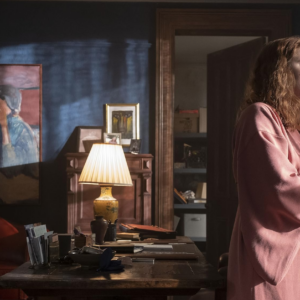I guess it’s quiz season, because I can’t stop making quizzes. By that, do I mean that it’s quiz season so I’m making quizzes, or I’m making quizzes so it’s quiz season? I don’t know, but the finer points don’t really matter. What only matters is: quiz.
This particular quiz conceit comes to you from my Lit Hub colleague Emily Temple, who, in 2019, went through the Library of Congress catalog and found the subject category listings for many classic novels, and turned her findings into a delightful quiz. You can take it here.
What is a Library of Congress subject category? Well, I’ll tell you! It’s a designation that helps organize the 62 million items in the library’s collection. Books often have their Library of Congress categories listed on their copyright page, so you’ve probably seen them before.
But, not knowing the title before reading the subject categories can lead to some amusing guessing. Hence, our quiz!
As usual, the answer key is way down at the bottom. As you take the quiz, I’d write down your answers next to the corresponding questions’ numbers (on a sheet of paper or in your notes app) and then grade yourself in one swoop when you’re done, so that you’re not constantly scrolling down and up again as you go, thereby risking seeing some of the other answers. (Also, I omitted any categories that involved character names, just to keep things less obvious.)
Enjoy!
1.
Private investigators–California–Los Angeles–Fiction.
African American men–Fiction.
Los Angeles (Calif.)–Fiction.
2.
Serial murderers–Fiction.
Psychopaths–Fiction.
Criminals–Fiction.
Italy–Fiction.
3.
Traffic accidents–Fiction.
Married women–Fiction.
First loves–Fiction.
Rich people–Fiction.
Mistresses–Fiction.
Revenge–Fiction.
Long Island (N.Y.)–Fiction
4.
Private investigators–California–Los Angeles–Fiction.
Los Angeles (Calif.)–Fiction
5.
Monastic and religious life–Italy–History–Middle Ages, 600-1500–Fiction.
Monastic libraries–Italy–Fiction.
Italy–Church history–476-1400–Fiction.
Church history.
Detective and mystery stories.
Historical fiction.
Didactic fiction.
6.
Private investigators–Fiction.
Murder–Investigation–Fiction.
Georgia–Fiction.
7.
Remarried people–Fiction.
Cornwall (England : County)–Fiction.
Romantic suspense fiction.
8.
Teacher-student relationships–Fiction.
College students–Fiction.
Classicists–Fiction.
Murder–Fiction.
Vermont–Fiction. I. Psychological fiction. II. College stories.
9.
Psychiatric hospital patients–Fiction.
Inheritance and succession–Fiction.
Country homes–Fiction.
Art teachers–Fiction.
Deception–Fiction.
Nobility–Fiction.
England–Fiction.
Psychological fiction.
Gothic fiction.
Love stories.
10.
Husbands–Fiction.
Married people–Fiction.
Wives–Crimes against–Fiction.
11.
Triangles (Interpersonal relations)–Fiction.
Married women–Fiction.
Murderers–Fiction.
Adultery–Fiction.
12.
Hotelkeepers–Fiction.
Families–Fiction.
Occult fiction.
Horror tales.
13.
Private investigators–Egypt–Fiction.
Belgians–Egypt–Fiction.
Egypt–Fiction.
14.
Korean War, 1950-1953–Veterans–Fiction.
Politicians’ spouses–Fiction.
Mothers and sons–Fiction.
Brainwashing–Fiction.
Assassins–Fiction.
Cold War–Fiction.
15.
Private investigators–England–Fiction.
Blessing and cursing–Fiction.
Dogs–Fiction.
Dartmoor (England)–Fiction.
.
.
.
.
.
.
.
.
.
.
.
.
.
.
.
.
1. Devil in a Blue Dress, Walter Mosley
2. The Talented Mr. Ripley, Patricia Highsmith
3. The Great Gatsby, F. Scott Fitzgerald
4. The Big Slee, Raymond Chandler
5. The Name of the Rose, Umberto Eco
6. Killing Floor, Lee Child
7. Rebecca, Daphne du Maurier
8. The Secret History, Donna Tartt
9. The Woman in White, Wilkie Collins
10. Gone Girl, Gillian Flynn
11. The Postman Always Rings Twice, James M. Cain
12. The Shining, Stephen King
13. Death on the Nile, Agatha Christie
14. The Manchurian Candidate, Richard Condon
15. The Hound of the Baskervilles, Arthur Conan Doyle

















